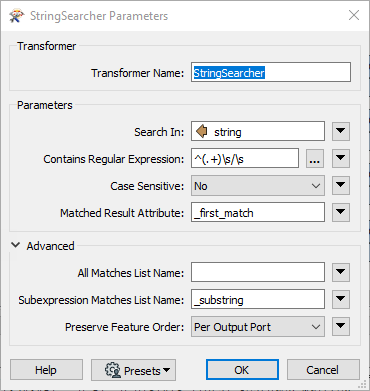I am trying to get all of the Characters in a string that occur before the following " /" (thats a space followed by a /). Here is the catch there could be spaces and / before the occurance of the " /" and I want to keep those in the found string.
I was trying to use the stringSearch and do this in one step (I was able to do this in 2 steps by first stringReplace the " /" with a character I knew would not appear and then doing a stringsearch but this should be doable in one step with the correct regEx expression)
Here are examples
123ABD / 99 - "123ABD" would be found
123/ABD / 99 - "123/ABD" would be found
123% ABD/99 / 789 - "123% ABD/99" would be found
123 / 456 / 789 - "123" would be found
hopefully this makes it clear
Thx
in advance to you RegEx wizards out there...
Best answer by gio
View original









